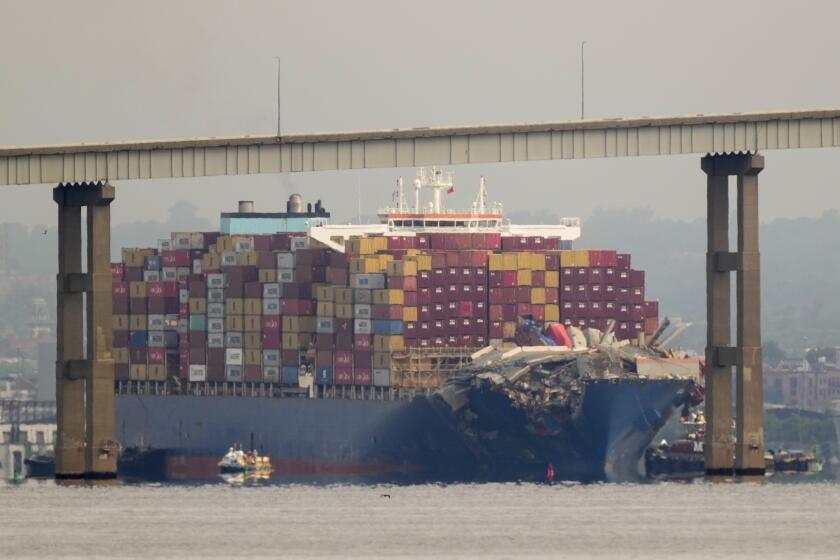Foreign Policy in the Cold War’s Wake: A Whole New Ball Game
For more than four decades the Cold War defined U.S. foreign policy, focusing American national interests and giving rise to an unprecedented level of international engagement. Without the Cold War there would have been no global network of military and political alliances, no costly interventions in Korea and Southeast Asia, no arms race. At home, national security concerns raised by the ideological competition with communism helped mobilize backing for the federal highway system, the space program and government subsidies for scientific research and education. To an extent perhaps still not fully realized, the Cold War directed the course of much of American history in the second half of the 20th Century. Now, in its aftermath, a new agenda of global challenges has emerged to test American leadership.
Most Americans, willingly or resignedly, continue to accept that Washington must go on playing a lead role in international affairs; most other nations, too, accept this. There simply is no other power whose leadership others immediately look to when crises erupt or great international ventures are called for. The United States, says Lt. Gen. James Clapper, director of the Defense Intelligence Agency, has become “kind of the world’s 911.” Foreigners, however, appear to be more eager than Americans to have the United States take the point position. With the end of the Cold War has come an unmistakable erosion in the national consensus on just what the scope and nature of U.S. engagement abroad should be, especially where the use of force might be involved.
While there was always domestic dissent over the nature of the Cold War and the means with which it was waged, most Americans generally supported policies that aimed at containing the spread of communism. But in the post-Cold War era, a study by the Times Mirror Center for the People & the Press has found, there is no longer broad agreement on where vital interests lie. The public and opinion leaders agree that protecting U.S. oil supplies and trying to prevent nuclear proliferation are of basic importance, the survey found. Other polls have pointed to a readiness to support intervention related to such domestic problems as illegal drugs and illegal immigration. Beyond that, opinion is unfocused and uncertain. All this can change, of course, as the world changes and as the drama of events works on popular emotions.
Globe-spanning technology that now makes instantaneous communications possible can be a wonderful thing. But at the policy-making level, it can be an insidious thief that robs decision makers of the time they need to reflect and consult. James A. Baker III, George Bush’s secretary of state during the Persian Gulf War, once said that a CNN broadcast of a “peace” proposal by Saddam Hussein early in the crisis forced the White House to rush out a response within the hour, lest Iraq gain a propaganda advantage. Similarly, concern over how the public might react to TV pictures of the devastation along the highway taken by Iraqi troops retreating from Kuwait prompted the U.S. decision to bring the war to what many think was a premature halt. For better or worse, information technology has become an influential force in decision making.
Increasingly, Washington has opted for multinational approaches to world problems, through a stronger United Nations or other groupings. Nowhere is that more important than in trying to contain the chaos and alleviate the suffering produced by the implosion of what have come to be known as failed states.
In coming weeks, The Times will explore some of the key challenges U.S. foreign policy is likely to face in the years ahead. Based in part on interviews with more than a score of specialists, we will look at basic concerns and interests that drive U.S. policy, assess what the nation’s global priorities should be and what realistic limits govern American efforts.
The Cold War, for all its anxious testing of wills, in time came to be regulated by implicit understandings among the major powers. Where Cold War-related conflicts occurred--in Southeast Asia, the Middle East--they stayed localized. In a crude way, the Cold War produced something of an orderly world, able to carry on even under the omnipresent threat of mutual assured nuclear destruction. That threat has been lifted. But while the superpowers have halted their arms race, smaller states have not. Indeed, there has been a breakdown in the restraints Moscow and Washington once could apply to the spread of nuclear and other weapons of mass destruction. Controlling proliferation looms as one of the great problems.
Henry A. Kissinger has written, “The problems of energy, resources, environment, population, the uses of space and the seas, now rank with questions of military security, ideology and territorial rivalry, which have traditionally made up the diplomatic agenda.” At the same time, competition for world markets has intensified, even as the need for greater economic integration and cooperation has expanded. American vision and leadership are certain to be severely tested in confronting basic problems of how finite global resources can be justly apportioned among this planet’s rapidly expanding population.
The foreign policy agenda for coming years--not a series of discrete problems but a tangle of interrelated ones--is crowded, complex and worrying. In coming weeks we’ll look at some of the major items on that agenda, and offer some ideas about how our country should proceed.
*
Next Sunday: The U.S. global role.
More to Read
Start your day right
Sign up for Essential California for news, features and recommendations from the L.A. Times and beyond in your inbox six days a week.
You may occasionally receive promotional content from the Los Angeles Times.






